Elections have Consequences
This series has covered evidence of deep corruption in New Mexico’s judiciary: From nepotism to the radical organization “Emerge” seeking to undermine the independence and fairness of New Mexico’s Judiciary. We have covered how the makeup of the judiciary is heavily skewed toward Democrats, and out of proportion with the actual political makeup of the state. In fact, 28 judges have been placed on New Mexico’s highest benches by an organization whose goal is to use judges to affect policy, not just to interpret the law.
This article will explore serious discrepancies in how and when judges are placed on the ballot for retention or election and the appearance that the Secretary of State is preventing some judges from having to face the people at the ballot box as the law requires.
As explored in Part 3, 69 percent of the judges in the state are Democrats, even though Democrats only account for 43 percent of registered voters. This raises questions about how such an imbalance could have occurred. Article VI, Section 35 of the New Mexico Constitution mandates that the Judicial Nominating Commission must be equally balanced between the major political parties to prevent such an imbalance from occurring.
The Commission also has structured rules they are to follow in the nominating process. Parts 1 and 2 of this series reveal that the rigorous process does not appear to be followed as intended and has led to the Commission providing less than ideal candidates for selection.
Election and Retention:
In 1988, the New Mexico voters passed a constitutional amendment for judicial reform, establishing a commission-based appointment process for filling judicial vacancies. In 2022, voters passed another constitutional amendment so now when a midterm vacancy occurs, the governor appoints a judge from a list of candidates provided by the Judicial Nominating Commission. The appointed judge will serve until the first general election held one year after their appointment. The appointed judge must then run in that general election to serve the remainder of the unexpired term.
A judge’s first election is the only one which is a partisan election – meaning the judge’s party is stated on the ballot and another candidate can challenge the appointed judge for their seat. After their first election, judges simply have “retention elections” where they run unopposed, and their party affiliation is not listed on the ballot. In a retention election, voters can only vote for or against the judge. It is almost impossible to lose a retention election, meaning it is almost impossible to get a judge out after they have gotten through their first partisan election. Even if a judge lost their retention election, their seat would be filled by an appointment from the Governor. This means control of the judiciary is heavily weighted toward partisan government insiders and against the people.
An investigation by the Estancia News reveals that the Secretary of State has failed to place two judges, Judge Debra Ramirez and Daylene Marsh, on the November 2024 ballot despite Administrator of the Court records indicating their term will expire in December of this year. Daylene Marsh is a Democrat Emerge judge.
After 2022, judges were to serve at least a year after appointment until the first general election was held. However, there were three instances where judges were placed on the ballot within months of appointment: Judge Emeterio L. Rudolfo, Second Judicial Dist.; Judge David Murphy, Second Judicial Dist.; and Judge Anne Marie Lewis, Fifth Judicial Dist. Failing Failure to follow the law in these instances meant there was no time for these judges to establish any kind of record for the public to judge them by, or time for an opponent to even initiate a campaign for the seat.
These inconsistencies with law should lead the public to question everything the court system and the Secretary of State report on the schedule of judicial elections.
Conclusion:
The alarming statistics on crime in New Mexico are at least partly due to the subversion of the very foundation of the legal system. Significant portions of the judiciary in New Mexico are no longer an independent arbiter, free from the influence of political ideologies, that protects the rights of all citizens. Many judges are now overtly aligned with political groups and their decisions reflect partisan biases rather than impartial justice.
As voters, the power to influence judicial impartiality begins with being informed. Before casting your vote in the upcoming elections, consider the long-term implications of a politically influenced judiciary on the rights and freedoms cherished by all New Mexico residents. The court system does provide “evaluations” on Justices so the public can make informed decisions. But remember that these evaluations are done by the government.
It is important to research the judges for partisan elections and retention within your communities. Start asking questions of your neighbors, friends, coworkers and church about the judges in your community. That is the only way New Mexico will reinstate justice. Consider taking this table with you to the ballot box as a guide on which judges have pledged to uphold a political ideology from the bench:
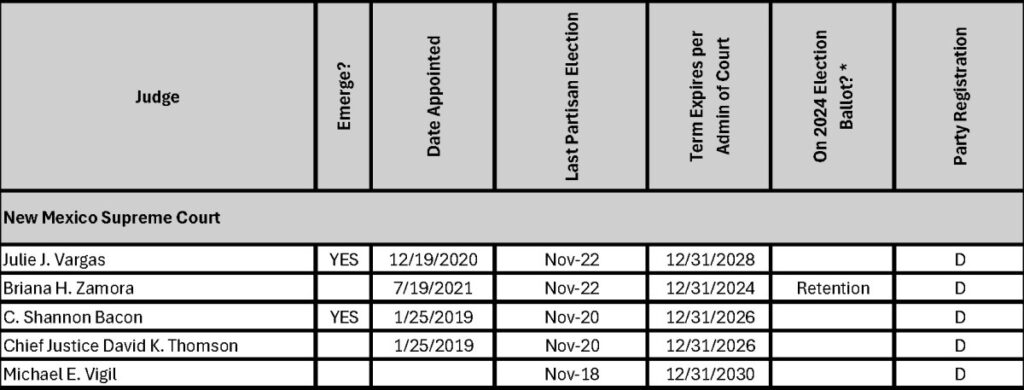
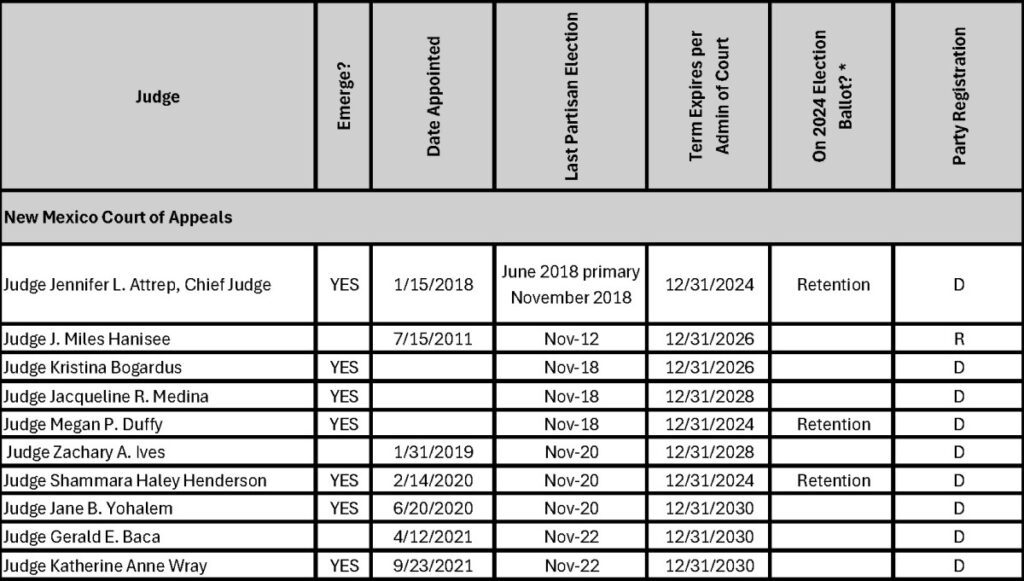
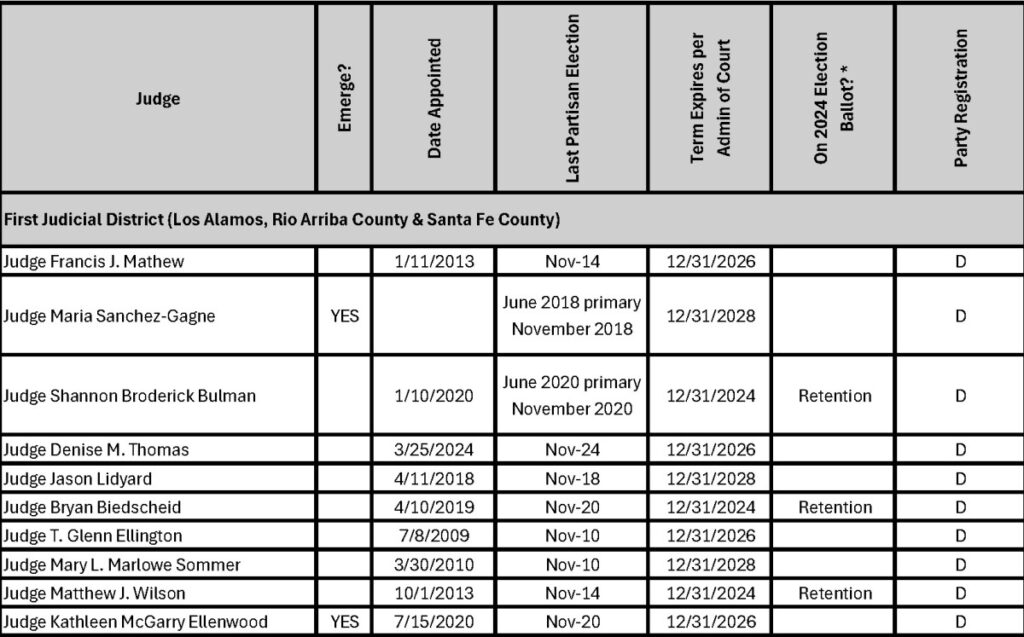
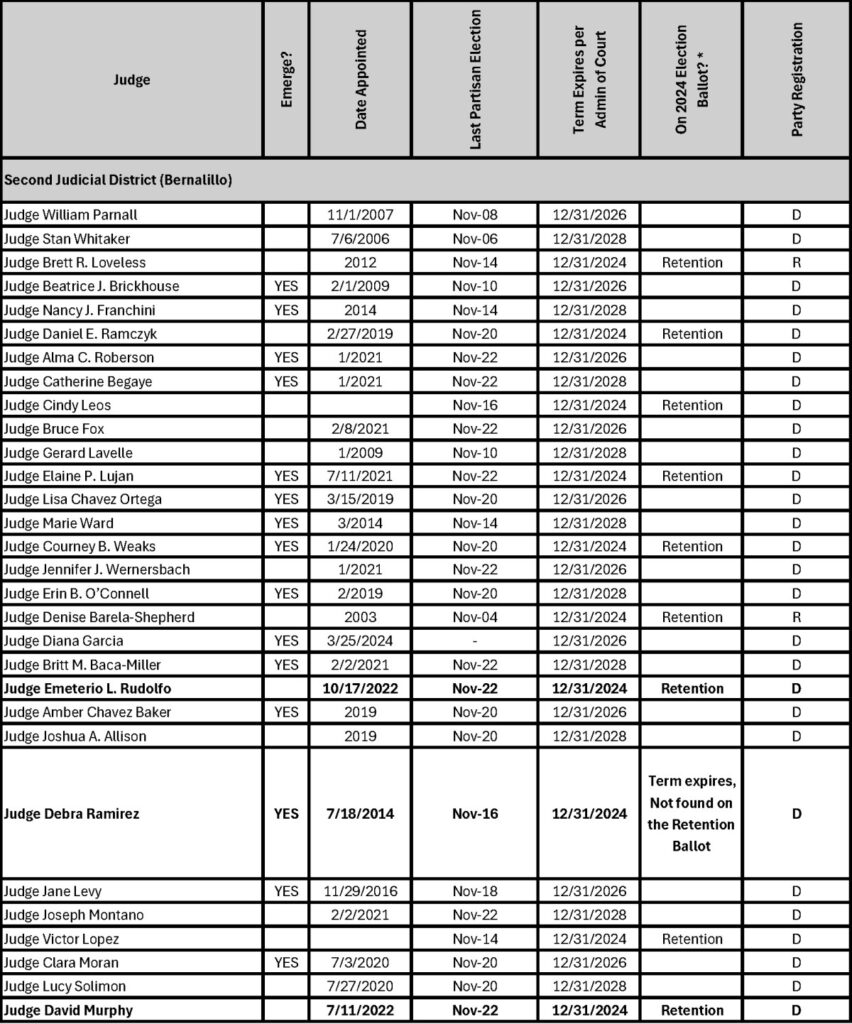
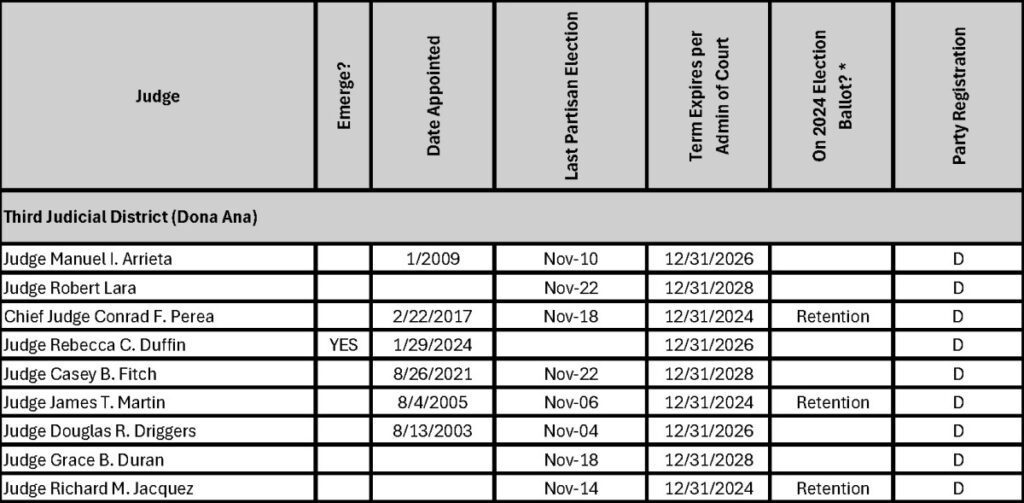

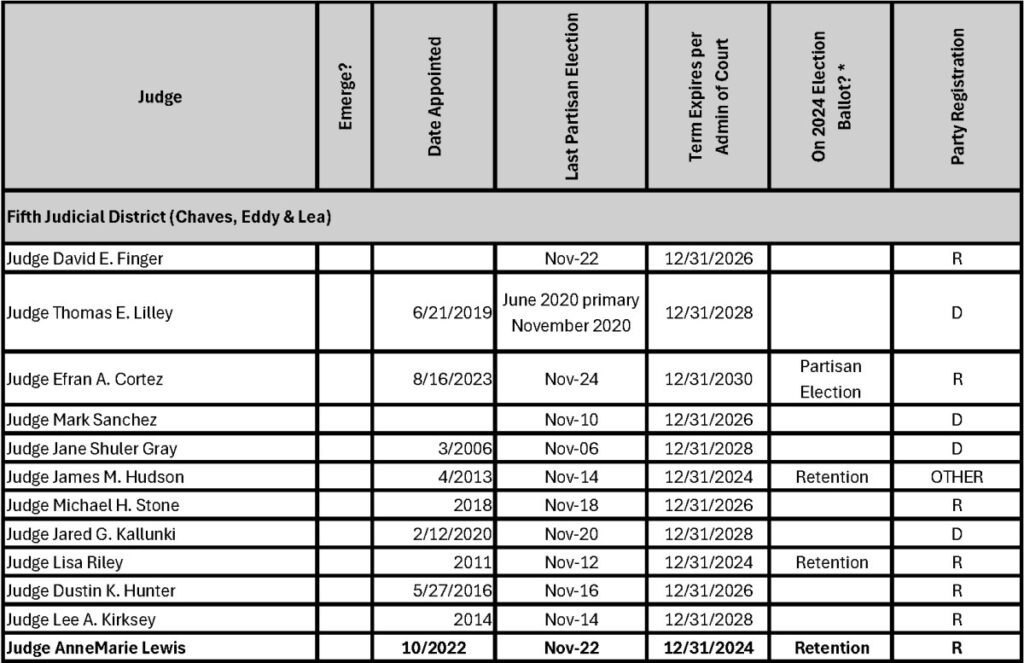
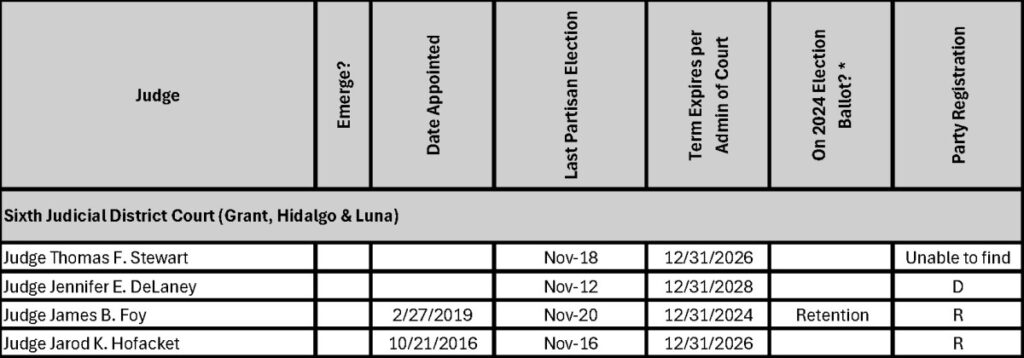


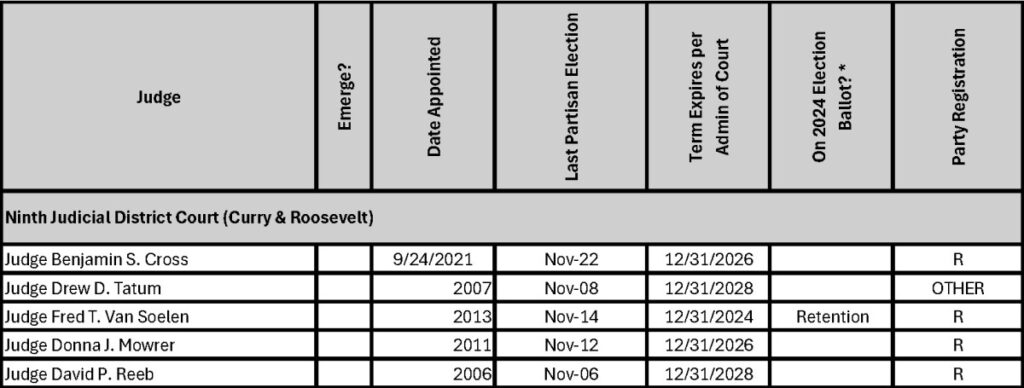

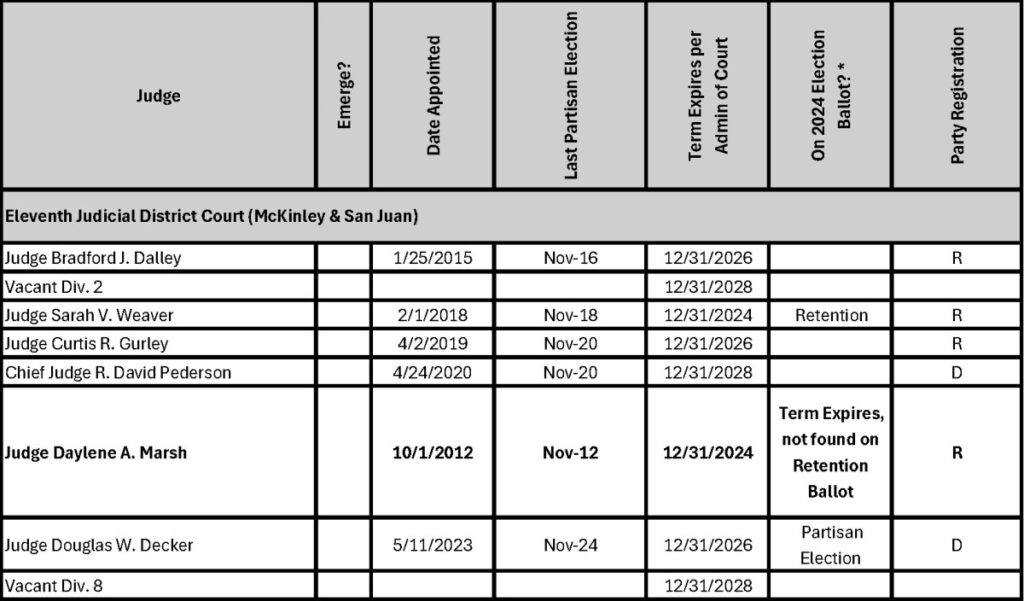
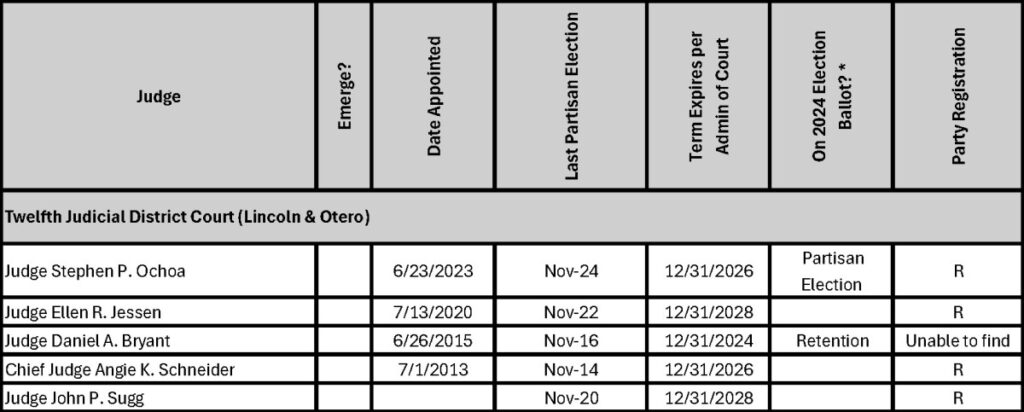
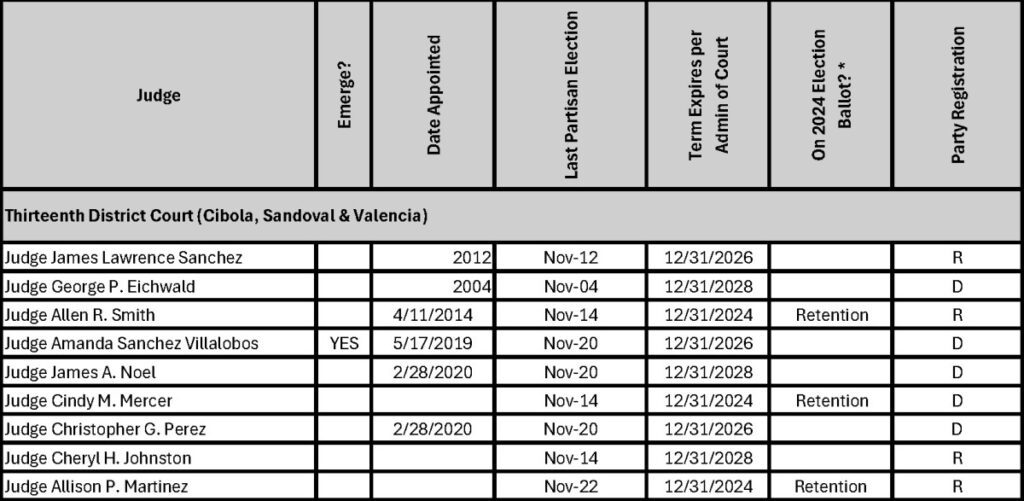
- Opinion | SB 218—New Mexico’s Promise Made, Promise Broken - February 24, 2025
- New Mexico’s Supreme Court Ignores Rights and Restricts Who Can Hear Election Cases - January 9, 2025
- Progressive Blueprint: How EMERGE’s Legislative Surge is Poised to Reshape New Mexico - January 6, 2025


